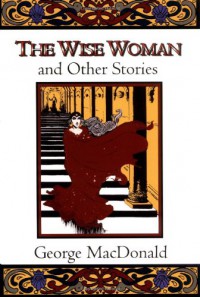Keely
I like taking a literary approach to genre works like fantasy, sci fi, and supernatural horror and seeing what comes of it.
George MacDonald's 'The Wise Woman and Others'

The title story of this collection is exactly what you would expect of a fairy tale written by a minister and subtitled 'a parable', which is to say it's not particularly fantastical, and feels a great deal like reading a sermon. Condescending and blandly didactic--MacDonald never lets an image or symbol stand on its own, but must always hem and haw about it, telling us what is right and what is not.
There is little enough wonder in it--we are told what to think and why. the focus is always on little errors and rules and flaws of character, never upon anything grander, nothing to ignite man’s imagination or awe--indeed, it is all terribly petty.
He seems to think of children as awful little monsters, naturally disposed to self-destruction--and the only way to fix them is to put them through a series of strange tortures. They are not corrected and taught by example, or by interaction, or explanation, or by forming any kind of genuine relationship with the child, but rather by leaving them alone and letting them grow more and more confused, miserable, and terrified. At one point the 'wise woman' uses her magic to make a child think she has accidentally killed her playmate.
Of course, anyone familiar with the tradition of English Boarding schools, whether through 'school stories' or the autobiographical accounts of figures like Roald Dahl, C.S. Lewis, and George Orwell will recognize this sort of distant, abusive ‘hard love’ that English schooling became infamous for.
His view of humanity just comes off as so negative--so prejudiced and judgmental--and at the same time condescending. The Wise Woman of the story is entirely convinced that hers is the proper way, that no matter what she puts the children through, abandoning, confusing, and demanding things of them, it is the right thing, and will prove so in the end. Of course, in fantasy the author can create whatever sort of world they want, one which reflects his own whims and judgments, and which in the end justifies them, producing whatever effect is required.
That is why didactic works like this are so far inferior to open-ended works like Dunsany’s, which show us remarkable things, lead us through strange, new thoughts, instead of insisting that we take from it any particular message or lesson.
Dunsany is not top-down, he does not require that you believe as he does--he is not so conceited. Instead, he intends to open the world to you--not to tell you something which he thinks you ought to know, but to share an experience with you, not doling out from on high, but engaging in a give-and-take--an opportunity for both author and reader to learn and grow and see the world anew.
All in all, it is not surprising to learn that MacDonald mentored C.S. Lewis, as there is that same sense of being alternately scolded and coddled by a pretentious schoolmaster. However, the last few stories which make up this collection, while much briefer, do not suffer from this same voice. They are a bit plain, but they are not judgmental or sermonizing--indeed, there are some clever and humorous bits of dialogue in them.
It gives me hope that perhaps some of MacDonald's other stories are more pleasant and wondrous, and that I've just chanced to stumble upon him at his worst--I've certainly heard promising things about works like Phantastes and The Princess and the Goblin, but I fear it will be some time before this foul taste disperses and I feel up to cracking open another of his books.
 2
2


